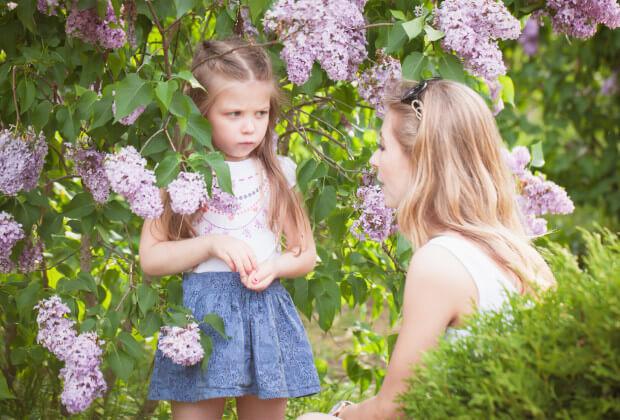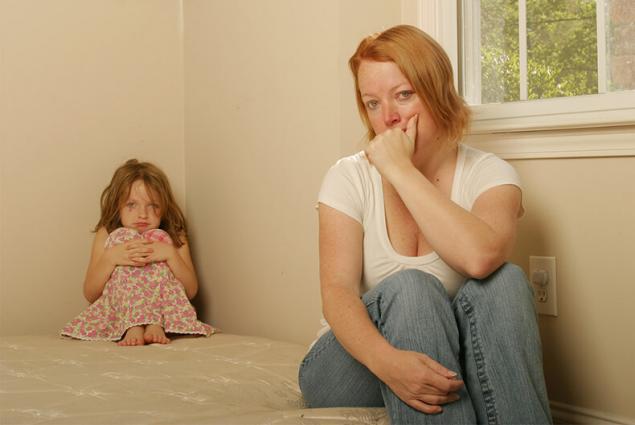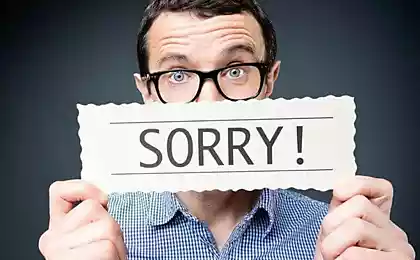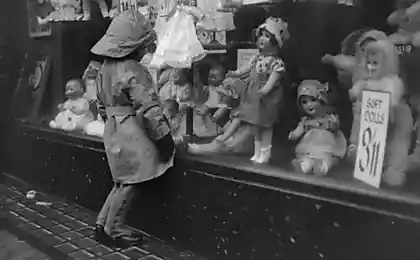197
Should I ask my child to apologize?
In adults, it is customary to apologize if you did something wrong: interfered with someone, caused inconvenience, intentionally or involuntarily offended, etc. An apology is considered a sign of good manners. So, it is considered uncultured the person who stepped on the other leg and did not apologize.
Many adult apologies are ritualistic. Pushed, apologised, and ran on without thinking too much about what had happened. I know you, don't I? In these cases, apologizing is easy. Sometimes it's not easy to apologize. For example, shame or guilt interfere. And this is also familiar to many adults.

What about the kids? Should I teach my child to apologize? Should we insist on apologizing? To answer this question, I will first ask you to answer one of my questions. Do you want your child to apologize sincerely or ritually?
I’m sure most readers will answer that they don’t see any sense in ritual apologies (other than decency). And remember how in kindergarten many children as a mantra repeated the words "I'm sorry more taknebud"?
This apology was not even a phrase, it was a single word and was used on a variety of occasions. It was said after a fight, it was used by those who asked to go to the toilet during the quiet hour, spilled soup during lunch, etc.
So it was kind of an indulgence. Said the cherished word and walk yourself on calmly. Does it make sense to apologize? Of course, they make no sense. Adults, whether educators or parents, who insist on such a formal apology, are being imprudent. They teach the child that the word "please excuse me more" already corrects the situation.

So we talked about what not to do. But it is important to discuss what needs to be done. How do you teach your child to apologize?
For a child, the most important source of learning is the observation of parents and the experience of personal experience.
What does that mean? This means that if a child sees his or her parents apologizing for their actions, he or she learns to apologize. If the mother apologizes in the street to the person who stepped on the leg, the child learns that in this situation you need to apologize. There is hardly any need for additional words or even whole conversations about the need for an apology.
If a child sees that a fiery father apologizes to his mother, he understands that it is impossible to be rude and pretend that nothing happened. And most importantly, a child understands the importance of apologizing if they have the experience of apologizing to them.
Parents often do not apologize to their children, even if they are guilty. It’s as if something is wrong and demeaning for an adult. But the strongest child grievances are often associated with the injustice of an adult who offended and did not apologize.
If the parent is critical of himself, sees that he was wrong and corrects mistakes by apologizing, he gives the child an important experience. The child understands that apologies are important. Then what does the baby do? He also apologizes when he feels guilty.
The last thing you and I can talk about, How to start teaching your child to apologize. If a child who does not yet know how to speak, in the sandbox sprinkled sand on another, pushed or took away a toy, can he apologize? No, of course not. A one-year-old child cannot speak, but he understands what adults say. Therefore, you can say apologies.
Just tell the other child something like, “Sorry, Masha sprayed you with sand, she didn’t think you’d be uncomfortable.” And then Masha realizes that having done something unpleasant to another, you need to apologize.
6 Golden Rules for Raising a Lazy Man
The Poverty Scenario: Learn Why You Shouldn't Make Your Child Share Toys
Normally, by the age of three or four, children naturally, sincerely and without coercion begin to apologize to other children and adults if they see that they have done something not very good. What happens when the child is not taught to forgive? What to do if a child does not apologize for doing something not very good, we will talk next time.
Author: Julia Guseva
P.S. And remember, just by changing your consciousness – together we change the world!
Source: mchildren.ru/nuzhno-li-nastaivat-na-tom-chtoby-rebyonok-izvinilsya/?
Many adult apologies are ritualistic. Pushed, apologised, and ran on without thinking too much about what had happened. I know you, don't I? In these cases, apologizing is easy. Sometimes it's not easy to apologize. For example, shame or guilt interfere. And this is also familiar to many adults.

What about the kids? Should I teach my child to apologize? Should we insist on apologizing? To answer this question, I will first ask you to answer one of my questions. Do you want your child to apologize sincerely or ritually?
I’m sure most readers will answer that they don’t see any sense in ritual apologies (other than decency). And remember how in kindergarten many children as a mantra repeated the words "I'm sorry more taknebud"?
This apology was not even a phrase, it was a single word and was used on a variety of occasions. It was said after a fight, it was used by those who asked to go to the toilet during the quiet hour, spilled soup during lunch, etc.
So it was kind of an indulgence. Said the cherished word and walk yourself on calmly. Does it make sense to apologize? Of course, they make no sense. Adults, whether educators or parents, who insist on such a formal apology, are being imprudent. They teach the child that the word "please excuse me more" already corrects the situation.

So we talked about what not to do. But it is important to discuss what needs to be done. How do you teach your child to apologize?
For a child, the most important source of learning is the observation of parents and the experience of personal experience.
What does that mean? This means that if a child sees his or her parents apologizing for their actions, he or she learns to apologize. If the mother apologizes in the street to the person who stepped on the leg, the child learns that in this situation you need to apologize. There is hardly any need for additional words or even whole conversations about the need for an apology.
If a child sees that a fiery father apologizes to his mother, he understands that it is impossible to be rude and pretend that nothing happened. And most importantly, a child understands the importance of apologizing if they have the experience of apologizing to them.
Parents often do not apologize to their children, even if they are guilty. It’s as if something is wrong and demeaning for an adult. But the strongest child grievances are often associated with the injustice of an adult who offended and did not apologize.
If the parent is critical of himself, sees that he was wrong and corrects mistakes by apologizing, he gives the child an important experience. The child understands that apologies are important. Then what does the baby do? He also apologizes when he feels guilty.
The last thing you and I can talk about, How to start teaching your child to apologize. If a child who does not yet know how to speak, in the sandbox sprinkled sand on another, pushed or took away a toy, can he apologize? No, of course not. A one-year-old child cannot speak, but he understands what adults say. Therefore, you can say apologies.
Just tell the other child something like, “Sorry, Masha sprayed you with sand, she didn’t think you’d be uncomfortable.” And then Masha realizes that having done something unpleasant to another, you need to apologize.
6 Golden Rules for Raising a Lazy Man
The Poverty Scenario: Learn Why You Shouldn't Make Your Child Share Toys
Normally, by the age of three or four, children naturally, sincerely and without coercion begin to apologize to other children and adults if they see that they have done something not very good. What happens when the child is not taught to forgive? What to do if a child does not apologize for doing something not very good, we will talk next time.
Author: Julia Guseva
P.S. And remember, just by changing your consciousness – together we change the world!
Source: mchildren.ru/nuzhno-li-nastaivat-na-tom-chtoby-rebyonok-izvinilsya/?
6 Sad Consequences of High Intelligence
Mobileye, the company will cease development of the autopilot for Tesla























